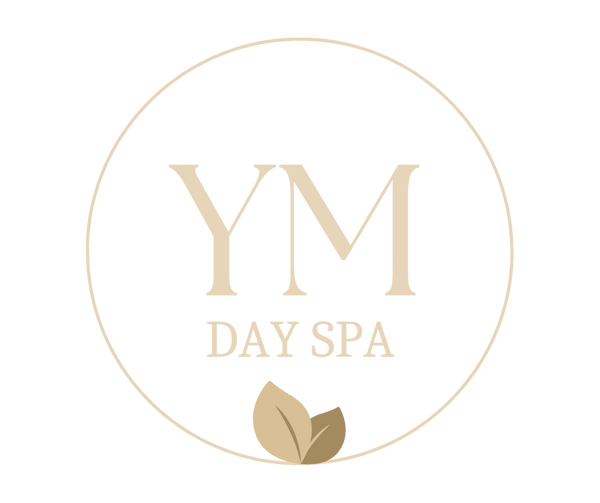Do you feel stressed, anxious, or depressed? Do you struggle with insomnia, headaches, or chronic pain? If you answered yes to any of these questions, you may benefit from massage therapy. Massage is not only a relaxing and enjoyable way to pamper yourself, but also a powerful tool to improve your mood and mental health. In this blog post, we will explore how massage can help you cope with some of the common mental health challenges, and what the science says about its effectiveness.
What is massage therapy?
Massage therapy is a form of complementary and alternative medicine that involves manipulating the soft tissues of the body, such as muscles, tendons, ligaments, and fascia, with the hands, fingers, elbows, knees, or feet. Massage therapists use various techniques, such as stroking, kneading, tapping, rubbing, and applying pressure, to achieve different goals, such as relaxation, pain relief, injury recovery, or wellness enhancement.
Massage therapy can be performed in different settings, such as spas, clinics, hospitals, or homes, and can last from a few minutes to an hour or more. Massage therapy can also be tailored to the individual needs and preferences of the client, such as the type, intensity, frequency, and duration of the massage, as well as the use of oils, aromatherapy, music, or other elements to enhance the experience.
How does massage therapy affect mental health?
Massage therapy can affect mental health in several ways, such as:
- Reducing stress and anxiety. Massage therapy can lower the levels of cortisol, the stress hormone, and increase the levels of serotonin and dopamine, the feel-good hormones, in the body. This can help reduce the symptoms of stress and anxiety, such as nervousness, irritability, worry, and fear, and promote a sense of calmness, happiness, and well-being.12
- Improving mood and mental health. Massage therapy can also improve mood and mental health by enhancing self-esteem, body image, and confidence. Massage therapy can also help people cope with depression, post-traumatic stress disorder, and other mental health conditions, by providing emotional support, comfort, and a positive human touch.34
- Improving sleep quality and quantity. Massage therapy can help improve sleep quality and quantity by relaxing the muscles and nervous system, and by regulating the circadian rhythm, the body’s natural sleep-wake cycle. Massage therapy can also help people who suffer from insomnia, sleep apnea, or other sleep disorders, by reducing the factors that interfere with sleep, such as pain, stress, and anxiety.
- Relieving pain and discomfort. Massage therapy can help relieve pain and discomfort by stimulating the release of endorphins, the body’s natural painkillers, and by reducing inflammation, muscle tension, and stiffness. Massage therapy can also help people who suffer from chronic pain, such as fibromyalgia, arthritis, or migraine, by improving their physical function, mobility, and quality of life.
What does the research say about massage therapy and mental health?
There is a growing body of research that supports the positive effects of massage therapy on mental health. Some of the studies include:
- A meta-analysis of 17 randomized controlled trials found that massage therapy significantly reduced depression and anxiety in various populations, such as pregnant women, cancer patients, and people with chronic diseases.
- A randomized controlled trial of 68 nurses found that receiving a 15-minute chair massage twice a week for four weeks significantly improved their mood, perceived stress, and cortisol levels, compared to a control group that received relaxation exercises.
- A randomized controlled trial of 53 military veterans with post-traumatic stress disorder found that receiving a 60-minute Swedish massage once a week for eight weeks significantly reduced their symptoms of anxiety, depression, and pain, and improved their quality of life, compared to a control group that received light touch.
- A randomized controlled trial of 66 elderly people with dementia found that receiving a 20-minute hand massage twice a week for four weeks significantly improved their mood, agitation, and cognitive function, compared to a control group that received friendly visits.
How to get the most out of massage therapy for mental health?
If you are interested in trying massage therapy for mental health, here are some tips to get the most out of it:
- Consult your doctor. Before starting massage therapy, you should consult your doctor, especially if you have any medical conditions or complications, such as high blood pressure, diabetes, heart disease, or skin problems. Your doctor can advise you on the best type, frequency, and duration of massage therapy for your situation, and any precautions or contraindications you need to follow.
- Choose a qualified therapist. Not all massage therapists are trained and experienced in working with mental health issues. You should choose a therapist who has the appropriate certification, education, and skills to meet your needs. You can ask for recommendations from your doctor, therapist, or friends, or look for online reviews and testimonials.
- Communicate your needs and preferences. Before and during your massage session, you should communicate your needs and preferences to your therapist, such as your health history, your goals, your comfort level, your pain threshold, and any areas you want to avoid or focus on. You should also give feedback to your therapist during the massage, and let them know if you feel any pain, discomfort, or nausea.
- Find a comfortable position. Depending on your stage of mental health, you may need to find a comfortable position for your massage. You may lie on your back, on your side, or on a specially designed table or cushion that can support your body. You should also use pillows, blankets, and towels to keep you warm and cozy.
- Enjoy and relax. The most important thing is to enjoy and relax during your massage. Massage therapy can be a wonderful way to take care of yourself, connect with your body and mind, and improve your mood and mental health. So, take a deep breath, close your eyes, and let go of any worries or stress. You deserve it!

